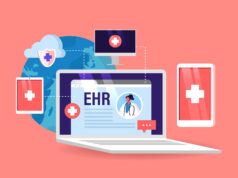Getting a clinical trial up and running is no simple task. Writing the protocol, securing Food and Drug Administration and institutional review board approvals, site activations and product manufacturing can take months. So it may come as a surprise that at a press conference last week, officials from one of the healthcare systems taking part in two Covid-19 drug trials emphasized repeatedly that they managed to shrink a months-long process down to a few days.
On Friday, officials from Northwell Health – a healthcare system that operates hospitals and clinics in New York and adjacent suburbs upstate and on Long Island – announced they had started enrolling patients in the trials for Gilead Sciences’ Phase III trial program of remdesivir as well as Regeneron Pharmaceuticals and Sanofi’s Phase II/III trial of Kevzara (sarilumab) for treating patients with SARS-CoV-2. While Northwell is one of many sites, its officials emphasized that the companies were able to get the trial up and running in four days. That’s in part because due to Covid-19’s severity, healthcare systems have had to mobilize quickly to deal with it, said Dr. Christina Brennan, vice president of clinical research at Northwell’s Feinstein Institutes for Medical Research, at the conference.
“But another thing is, pretty much across the nation, most other clinical trials have been put on enrollment hold,” she said. “The focus really now has turned to Covid-19 treatment trials for us.”
As such, she said, the institutional review board, the manufacturers and officials in charge of clinical trials, contracts and budgets were able to mount an all-hands-on-deck effort.
Brennan’s remarks speak to how the country’s infrastructure for clinical development has shifted amid the viral pandemic. In a note to investors Thursday, Morgan Stanley analyst David Risinger wrote that major academic centers in Covid-19 cluster areas are increasingly preparing for a surge in patients with the virus. As such, given their role in clinical trials, risks to those trials’ execution are mounting, and Risinger wrote that his team fears endpoint monitoring and patient retention could become a problem, with delays in new patient enrollment. He listed potential longer-term implications of such problems.
“Existing drugs could face fewer new competitive threats, but existing drugs that are dependent upon new indications may benefit less from anticipated future growth drivers,” he wrote. “And the economic value of certain pipeline candidates could be reduced if the area under the curve before patent expirations occur is squeezed.”
His view echoes those of the 170 clinical trial sites that took part in a survey by Continuum Clinical, some results of which were released Wednesday. In that survey, 30% of respondents said they anticipate “big” or “extremely big” effects from the SARS-CoV-2 pandemic on their ability to recruit patients into new trials and keep those already enrolled compliant. Patients, many said, would be less likely to enroll in new trials or remain in ongoing ones.
In a guest article Thursday, Alison Holland, Medable’s head of virtual clinical trials, wrote that the crisis is the right time to adopt decentralized clinical trials through things like digital technology. Indeed, the FDA also released a guidance Wednesday outlining some ways trials could go virtual amid the pandemic.
Photo: FotografiaBasica, Getty Images








